
What the End of Help-to-Save Means for Britain’s Working Poor
What Every Consumer Should Know About Financial Deregulation
Let’s be honest — the phrase “financial deregulation” might not make your heart race, unless you’re a former Federal Reserve chair or, like me, a lifelong policy wonk with a passion for consumer rights. But if you’ve ever used a credit card, taken out a student loan, or opened a bank account, financial deregulation has quietly (but powerfully) shaped your experience. It affects interest rates, fees, lending practices, and even how secure your savings are. So, let’s pull back the curtain on this unglamorous, yet critically important topic.
What Is Financial Deregulation?
In the simplest terms, financial deregulation is the reduction or elimination of government rules and oversight in the financial industry. Think of it as loosening the leash on banks, credit card companies, mortgage lenders, and investment firms.
Supporters claim deregulation increases efficiency, spurs innovation, and makes services cheaper and more accessible. Critics — and that’s often where I find myself — argue that too little oversight opens the door to abuse, predatory practices, and systemic risks. *Remember 2008? Yeah, that wasn’t a great look for deregulation.*
A Brief History: From New Deal to New Problems
Let’s take a quick walk down memory lane:
- 1930s–1980s: After the Great Depression, the U.S. implemented a strict regulatory framework through laws like the Glass-Steagall Act, which kept commercial banking separate from riskier investment banking. This was the financial system’s seatbelt-and-airbag era.
- 1980s–1990s: Deregulation took the wheel. Notably, the Gramm-Leach-Bliley Act of 1999 repealed parts of Glass-Steagall, allowing megabanks to form.
- 2000s: The fuse had been lit. With fewer rules, lenders and Wall Street created complex financial products, many of which exploded in the 2008 financial crisis.
- Post-2008: In response, the Dodd-Frank Act aimed to restore some balance. But in recent years, we’ve seen new efforts to scale back those protections.
This historical tug-of-war underscores a basic reality: deregulation is rarely neutral. It’s often a political and economic power play with very real implications for consumers.
How Deregulation Impacts You — Yes, You
Right about now, you might be wondering, “Okay Ellie, but how does this affect my wallet?” I’m so glad you asked.
1. Looser Lending = Higher Risk
When regulations are eased, lenders may be less diligent about determining whether a borrower can reasonably repay a loan. Sure, that makes credit more accessible, but it also paves a path toward predatory lending — particularly in marginalized communities.
Ever heard of payday loans with 400% APRs? Those thrive in deregulated environments. And let’s not forget the subprime mortgage products that kicked off the 2008 downturn.
2. Fewer Consumer Protections
Deregulation often weakens consumer watchdogs like the Consumer Financial Protection Bureau (CFPB). That means fewer eyes on shady business practices, from hidden fees to deceptive marketing.
Imagine trying to dispute an erroneous overdraft fee, only to find that the very agency designed to advocate for you has had its budget slashed or authority limited. Welcome to the deregulated wild west, partner.
3. Bank Fees and Interest Rates
Without regulatory caps, banks and lenders can increase fees or interest rates with less warning. Think foreign transaction fees, ATM charges, or ballooning credit card APRs — all rising quietly in the background while you’re vacation-planning or buying groceries.
4. Financial Stability (or Lack Thereof)
Deregulation can encourage banks to take bigger risks in search of bigger rewards. If they win, shareholders rejoice. If they lose — well, you might be footing the bill in a taxpayer-funded bailout. Sound familiar?
Who’s Really Benefiting from Deregulation?
I’ll give you a hint: it’s not your grandma trying to live on Social Security. Deregulation often benefits large financial institutions and high-level investors, not everyday consumers. It’s sold to us with promises of more competition and better service — and occasionally, that happens. But too often, the opposite unfolds: consolidation, opacity, and inequality.
Let’s break it down:
- Big Banks Get Bigger: Mergers skyrocket, reducing competition and giving mega-institutions even more pricing power.
- Small Banks Struggle: Local banks may lack the resources to compete or innovate without the protection of regulation.
- Consumers Get Confused: With fewer disclosure requirements, financial products become more complicated, making it harder for consumers to make informed choices.
Why Consumer Advocacy Matters
If all of this seems overwhelming, take a deep breath. You’re not powerless. But staying informed is the first step — and that’s where advocacy matters. Across the country, consumer rights organizations and policy-focused watchdogs are working to defend the public interest in the face of corporate lobbying and deregulation creep.
Whether it’s urging Congress to strengthen the CFPB, pushing for financial transparency, or challenging harmful fee structures, these efforts matter. And you, dear reader, can be part of the change.
How You Can Make a Difference
- Support advocacy groups like Public Citizen or Americans for Financial Reform.
- Write to your lawmakers and demand oversight on banking and lending practices.
- Stay educated: Read about your rights, watch financial policy news, and question the status quo.
The Bottom Line: Transparency Over Trickery
I won’t sugarcoat it: deregulation is often framed as “letting the market work its magic.” But markets only do real magic when rules level the playing field for everyone. Without guardrails, the financial sector isn’t just a game — it’s a high-stakes gamble, and often, the house wins.
So next time someone touts financial deregulation as a win for consumers, go ahead and raise an eyebrow on my behalf. Ask, “Who really benefits?” And more importantly, “What’s being compromised?” Because protecting consumer interests is not just smart policy — it’s a moral obligation.
Stay curious, stay skeptical, and always, always read the fine print.

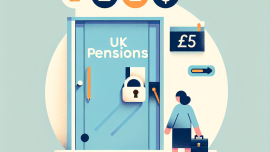



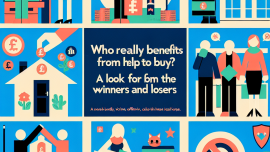
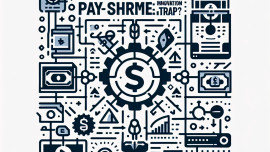
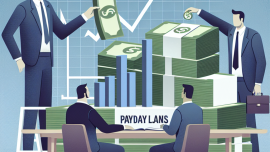
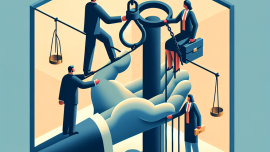
Leave a Reply